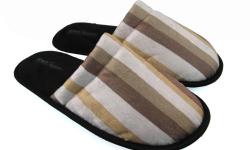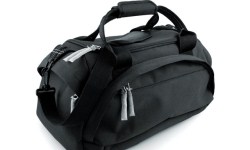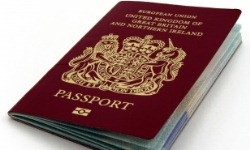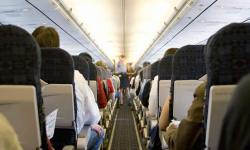10 Tips for Healthy Travel

1.
Stay stress free and plan ahead. Preparing for and enduring a long-haul flight is hard work, so start preparing for your trip long in advance. Organising passports, travel insurance, transfers to the airport, luggage and documentation early on will help avoid the anxiety of cutting your schedule too close and leaving everything to the last minute. This is especially relevant if you are planning a solo holiday, as you won't be able to rely on a friend or family member to be organised for you!

3.
It may be only a minor and more temporary nuisance, but many people suffer from motion sickness when travelling. It has been suggested that taking ginger supplements or ginger ale before you take-off can help prevent the symptoms of nausea and leave you feeling more settled.

5.
Many people suffer from cabin pressure during a flight owing to congested sinuses. For certain people, it can be excruciatingly painful, so using over-the-counter nasal decongestants may help to alleviate the symptoms before you fly. Additionally, using a saline nasal spray will ease nasal discomfort and dryness provoked by low humidity on the plane and will protect against cold and flu germs.

7.
During long flights, it is vital to be active and keep moving about to minimise the threat of deep vein thrombosis and relieve cramped muscles. Walking up and down the aisle when the seatbelt sign is off and flexing and stretching your legs when sitting will encourage blood flow around the body and limber up swollen ankles or feet.

9.
If your flight crosses multiple time zones, it is inevitable that your internal body clock will be disrupted, so it is important to reduce the effects of jet lag as much as possible. If you start to drift off, go with it. Conversely, when you arrive to your destination, try to adapt to the local time zone as best you can and resist the urge to sleep or eat meals at the wrong time of day. If you arrive during the day, going for a stroll outside will help you adapt more easily and the natural light will encourage your body to acclimatise. Likewise, if you arrive in the evening or night, adopt the local bedtime and try to go to sleep.


2.
Bring your own pillow. Sitting on a plane for an extended period can be extremely uncomfortable and make it difficult to get to sleep, so packing a small travel pillow in your hand-luggage will prevent extra discomfort and ensure you get your forty winks as and when needed.

4.
Dress comfortably. You could be on the plane for a very long time, so restrictive and tight jeans may not be the best option. Loose fitting clothes and comfortable shoes that you can slip on and off will not only be more snug, but won't impede blood flow around the body; a factor which can contribute to the risk of deep vein thrombosis.
6.
Stay hydrated. Cabin air is exceedingly dry and will dehydrate your system, as well as putting you at a higher risk of catching a cold or infection. Drink plenty of fluids and eat snacks with high water content such as peppers, cucumber and apples, and avoid caffeinated or alcoholic beverages, as these too can exacerbate dehydration.
8.
Travel lightly. Checked baggage fees have rocketed, encouraging many people to jam-pack their cabin bags. The extra weight you lug around before you board the plane can cause an early onset of the imminent aching muscles on top of heightened stress levels before your flight even takes off. What's more, anything stowed under your seat will just leave you feeling more cramped and is taking up valuable space where you could stretch out your legs.
10.
Eat Well. The meals offered by airlines are usually loaded with sugar and starch and can cause you to feel bloated and sluggish. Bring your own healthy snacks which will give you an energy boost such as dried fruits, nuts and seeds- minus the additives and preservatives of the processed meals on-board.
Getting to your destination isn't all doom and gloom; just think of what awaits you when you arrive! The journey will always be worthwhile, and there will be a number of ways to relax and de-stress on arrival if needs be. If you're looking for somewhere close to the UK, take a look at Adler Thermae in Italy. It is set in the heart of the beautiful Tuscan landscape with its own thermal spring and creates the perfect oasis for a healthy getaway, where you can choose from a fitness holiday, de-stress, yoga or detox holiday.
If, however, our health tips have inspired you to escape to a more distant and exotic location, with the knowledge that your journey can be more manageable, discover the multi-award winning Como Shambhala Estate in Bali, Indonesia. The level of care and comfort here is second to none and creates a serene atmosphere, with a dedicated Ayurveda doctor and yoga and Pilates pavilion, along with mountain biking and daily morning walks. Or perhaps the Caribbean would be your destination of choice, in which case we recommend the unbeatable Buccament Bay, a superb beach retreat on the island of St Vincent where luxury meets fitness and relaxation. Take your pick; just remember to stay healthy wherever you travel!
Talk to one of our Travel Specialists on 0203 397 8891 or contact us here to discuss tailor-making your perfect healthy holiday.
